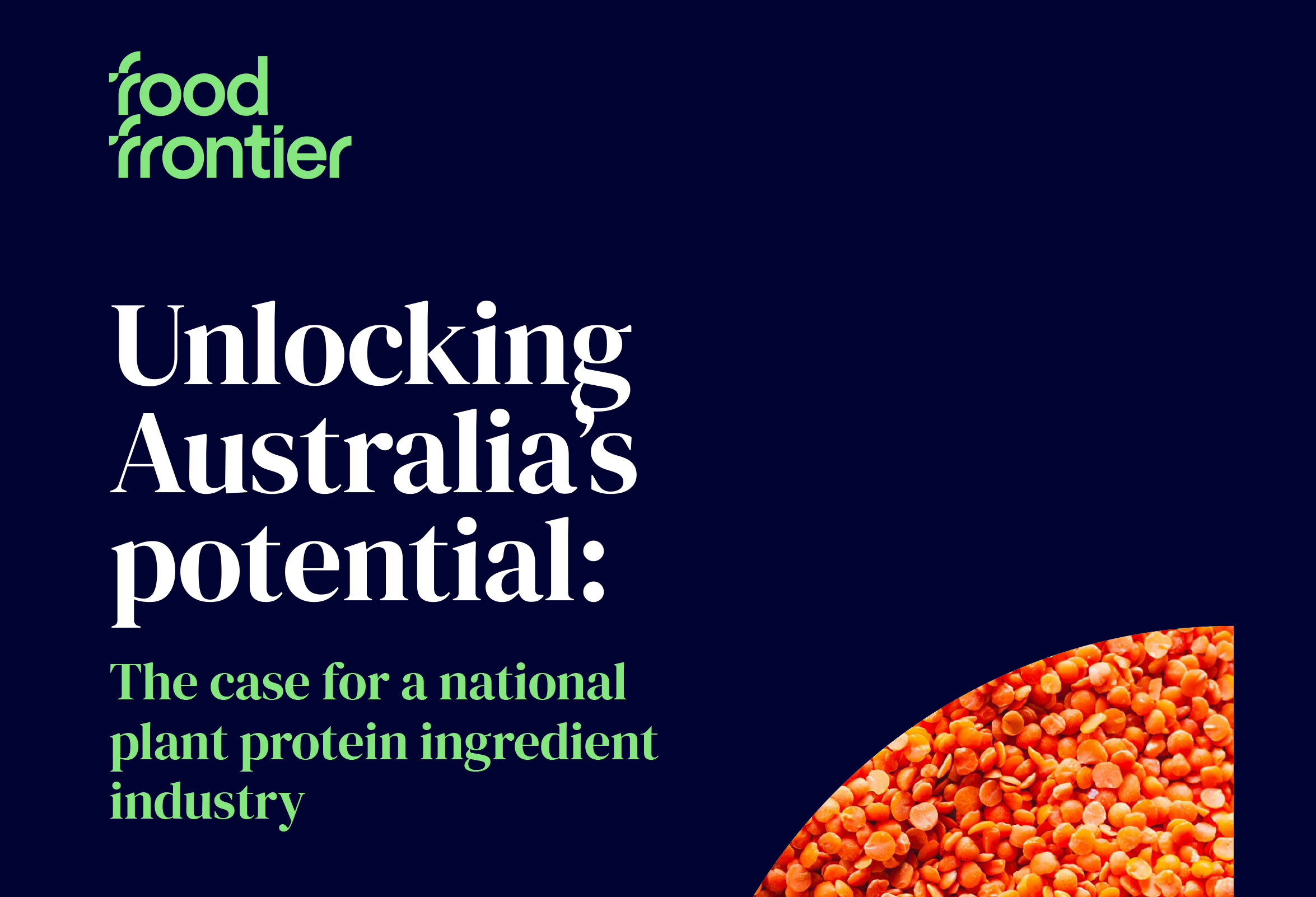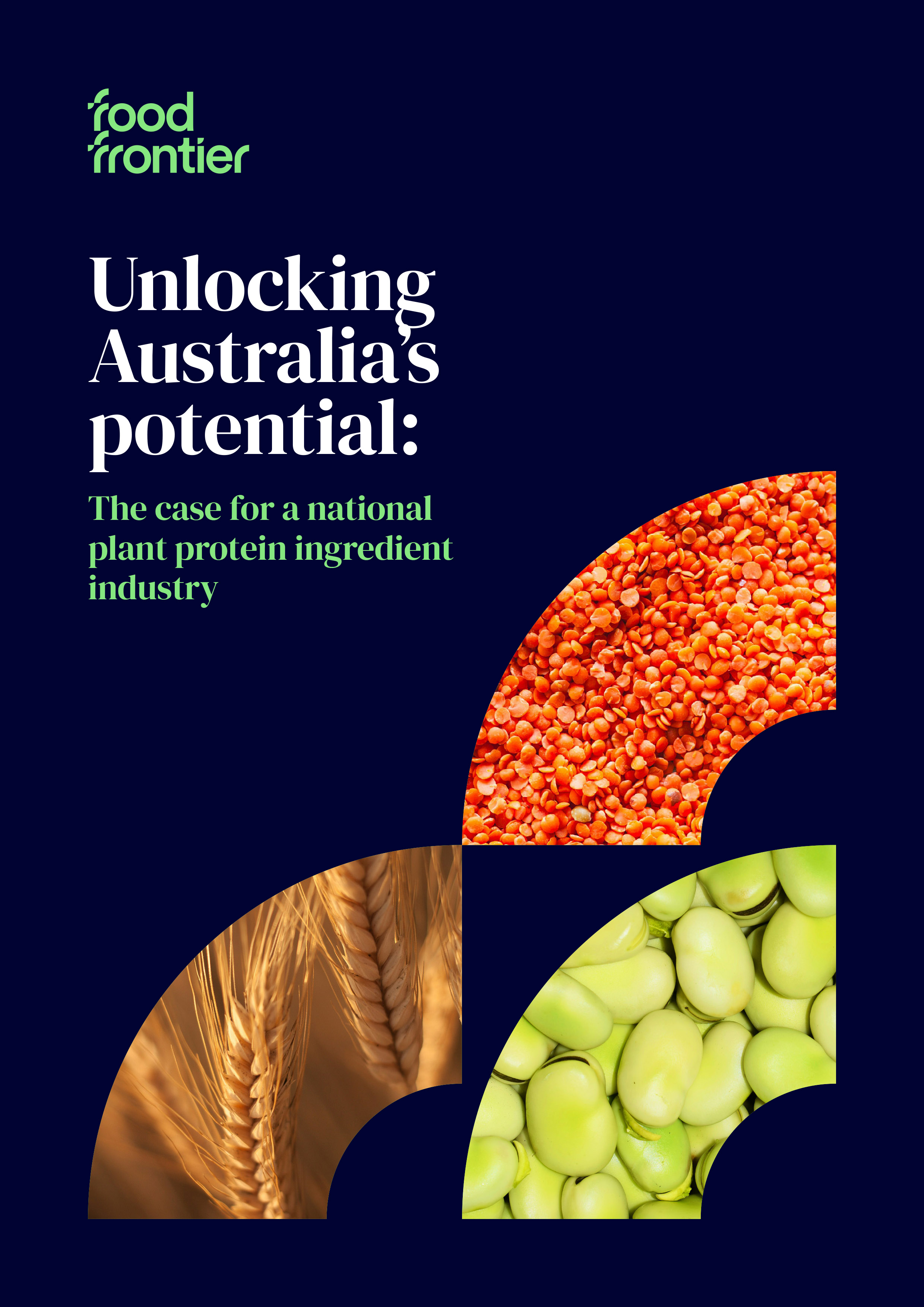

Food Frontier urges Australia to act fast on plant protein opportunity
Australia has been urged to accelerate investment in domestic plant protein ingredient manufacturing or risk losing out to international competitors already advancing their own industries.
A new report released by Food Frontier, the independent think tank on alternative proteins for Australia and New Zealand, makes the case for a coordinated national approach to plant protein production. The study, Unlocking Australia’s potential: The case for a national plant protein ingredient industry, argues that scaling processing capabilities would deliver long-term food security, boost regional economies, and capture value currently lost through exporting unprocessed crops.
The global plant protein ingredient market is forecast to nearly triple in size to US$69.2 billion by 2032, according to the report. Yet despite being a world leader in agricultural production, Australia processes only a small share of its protein-rich crops domestically. Instead, most of the raw materials are shipped overseas and later re-imported as higher-value ingredients.
“Locally, we face structural challenges such as high domestic manufacturing costs, limited catalytic investment, and a fragmented industry,” said David Bucca, Executive Chair of Food Frontier. “Australia risks falling further behind and missing this economic opportunity.”
He added, “Australia’s agricultural production is world leading. Now, we have a chance to compete with other global grain producers and top plant protein ingredient manufacturers, but we must act fast. Without decisive action, we risk remaining a lower-value commodity exporter, reliant on overseas manufacturers for imports – resulting in lost value for primary producers and higher costs for Australian consumers.”
Several nations have already moved ahead. Canada, China and the European Union have all launched national strategies to expand their plant protein industries, supporting investment in high-quality crops and advanced processing facilities. In 2022, Australia’s national science agency CSIRO identified plant proteins as a AU$6 billion (US$4 billion) market opportunity, forming part of its AU$13 billion (US$8.7 billion) National Protein Map to grow and diversify protein supply chains by 2030.

But Food Frontier’s analysis warns that Australia’s lack of a coordinated strategy leaves it at risk of being outpaced by international rivals. The report highlights how competitors are developing sophisticated processing capabilities that allow them to capture more of the value chain, while Australia continues to rely on exporting bulk commodities.
The report’s recommendations are designed to align with the Federal Government’s recent commitment to a national food security plan. Food Frontier argues that catalyzing investment in plant protein processing would reduce reliance on imports and strengthen resilience against volatile global supply chains, particularly as climate change intensifies risks to production.
Among its proposals, the report calls for the establishment of a national taskforce to coordinate policy, infrastructure and investment across jurisdictions. It also emphasizes the need for shared research and development platforms focused on crop breeding, processing optimization, ingredient functionality and byproduct valorization.
Other suggested measures include government support to drive demand and lower barriers to adoption through marketing campaigns, reformulation incentives and traceability systems. Scaling manufacturing through regional hubs, shared infrastructure and capital co-investment frameworks, along with building regional supply chains and workforce training, are also identified as priorities.
Andrew May of Essantis, an Australian company working in the plant protein sector, underscored the importance of collaboration: “Building Australia’s plant protein capability requires collaboration across the ecosystem, along with support from government, to scale faster and secure Australia’s place in global markets. Sustained growth in our sector is key to reducing our nation’s import reliance and contributing to more resilient regional communities.”
Australia produces about 59 million tons of protein-rich cereals, pulses and oilseeds each year, leading globally in lupin and ranking among the top producers of wheat and canola. The country also has significant growth potential in pulses such as chickpeas, lentils and faba beans.
Despite this advantage, more than 65% of these protein-rich crops are exported unprocessed. In 2023 alone, Australia exported 40.9 million tons of raw crops while importing an estimated 118,000 tons of processed plant protein ingredients. This mismatch highlights both the scale of opportunity and the economic value being left on the table.
Food Frontier’s report makes clear that domestic processing could transform Australia’s role in the global plant protein market from a commodity supplier to a leader in high-value ingredient manufacturing. But realizing that opportunity, the think tank stresses, depends on timely action.
“The Food Frontier report demonstrates Australia’s production advantage and the potential for the local industry to become market leading,” the report concludes. “But government and industry must seize this opportunity before we are outpaced by our global competitors.”
If you have any questions or would like to get in touch with us, please email info@futureofproteinproduction.com


-p-800.jpg)



